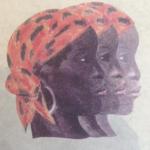Farah Nazeer, Chief Executive of Women’s Aid, said:
“Following a recent stream of anti-migrant protests seen across
England, and growing racist and Islamophobic rhetoric and abuse, we,
at Women’s Aid, are deeply concerned about the impact that this is
having on already vulnerable women and children.
We condemn these far-right actions and reject their deliberately
deceptive and divisive narrative that these demonstrations are geared
towards protecting women and children. We all want a future free from
abuse, but those pitting the rights and safety of women and girls
against other oppressed groups, many fleeing persecution and harm
themselves, are weaponising our movement to disguise and excuse
their racist propaganda, incite violence, and further their political
agenda. This is a dangerous and manipulative tactic that undermines
the safety of the very people they claim to protect.
Many of the people who are being targeted have fled violence and
persecution in their home countries, including vulnerable women and
children. These survivors faced unimaginable difficulties to escape
abuse. They seek safety and instead have been met with more abuse.
Our over 50-year legacy at Women’s Aid has taught us male violence is
not exclusive to any one culture or group, with one in four women
(27%) having experienced domestic abuse since the age of 16 (ONS,
2023a). The national emergency of violence against women and girls
(VAWG), and the misogynistic and sexist attitudes it is rooted in, exists
across all nations, races, ethnic and religious groups, and classes.
Moreso, the horrors we have witnessed over the recent weeks mirror
the very same violent and abusive behaviours we’re working to prevent.
This behaviour does nothing to ensure the safety of women and girls,
and counters the efforts of our sector to provide meaningful support to
those who need it.
The government has a responsibility to actively counter and reject the
dangerous rise of the far-right, ongoing public harassment, and
largescale disruption and disorder, and to prioritise the safety of
vulnerable people. Any woman or girl can experience domestic abuse
and sexual violence regardless of nationality, immigration status, race,
ethnic or religious group, sexuality, class, or disability, but some women
who experience other forms of oppression and discrimination may face
further barriers to disclosing abuse and finding help.
The government’s upcoming VAWG strategy must address the needs of, and protections
for, migrant victims of VAWG and domestic abuse.”
